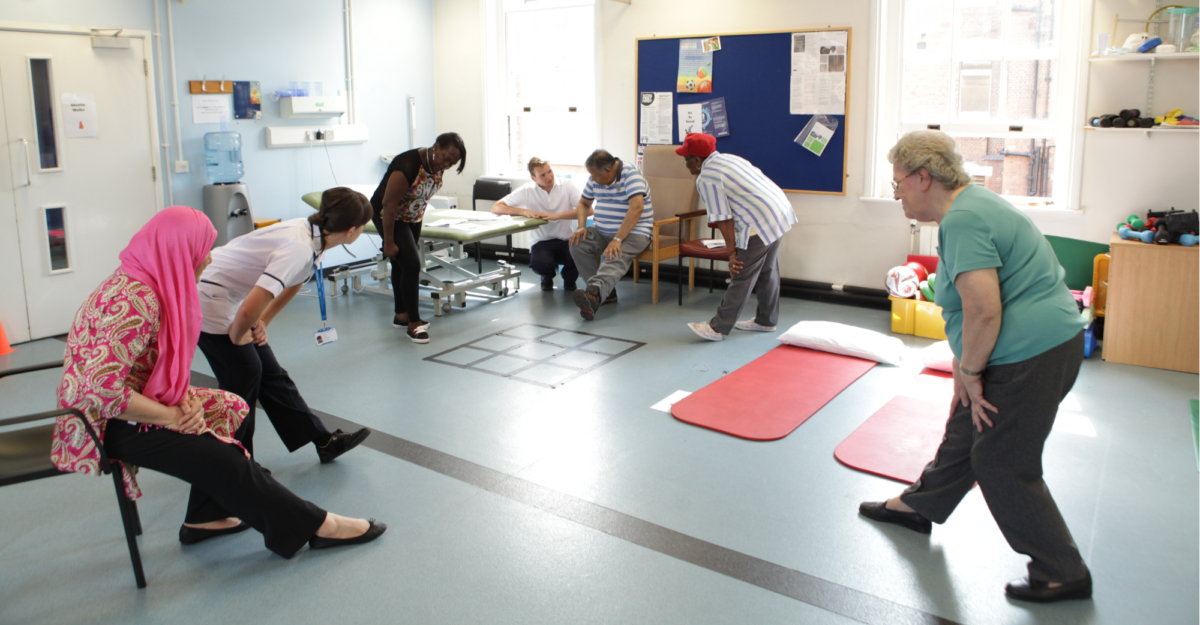
Megan Kirbyshire is six months into her secondment with us here at the West of England AHSN, working to spread and embed ESCAPE-pain across our region. Here Megan reflects on how the secondment has given her the opportunity to see her work in a wider context.
I recently had the privilege of presenting at the annual NHS Innovation Accelerator (NIA) Summit. Funded by NHS England, NIA selects around 15 innovations that have a good evidence base and have been shown to make a positive impact on the ground.
The founders of the NIA innovations become fellows of the programme and are given support through funding, coaching and networking. The consequence of the fellowships has seen their innovations being successfully spread around the country.
ESCAPE-pain is one of these innovations. I had the privilege of presenting alongside Professor Mike Hurley, the designer of ESCAPE-pain, at the summit about our successful programme in Cheltenham. The characteristic that made us ‘special’ is that we were the first successful site to fully embed the programme while working in partnership with the local leisure centre.
ESCAPE-pain is a programme designed to enable patients to self-manage their hip or knee osteoarthritis through education, exercise and behaviour change. It is exactly the sort of innovation I love working with on the ‘day-job’ as a Senior Musculoskeletal Physiotherapist at Gloucestershire Hospitals.
The summit was in part a celebration of the release of a report called ‘Understanding how and why the NHS adopts innovations’, which highlights the difficulties of spread and adoption within the NHS and in which we feature as a case study. However, I was able to proudly present what happens when adoption has all the right ingredients: positive working relationships, a flexible local funding agreement, forward thinking clinical leadership and passionate staff. It was an honour to be able to promote and celebrate our trust on a national stage.
A real eye opener
I would also like to take a moment to outline some of the activities that take place in the NHS outside of face-to-face clinical work, which have been a real eye opener to me.
In the first three months of my secondment, I learned so much about the functioning and complexity of the NHS. As clinicians, we tend not to take a step back to establish what else is going on outside of our clinical bubbles.
The learning opportunities are endless and as a starting point I would recommend scoping around organisations such as the AHSNs, Office for Life Sciences and of the NHS Innovation Accelerator programme – there are many more but to me they seem like a good place to start.
There are countless fantastic innovations coming through, which may be appropriate to your own clinical area. The learning from these may help make yours and your patients’ lives that little bit easier. It has made me realise the importance of being receptive and open to these innovations to continue to develop ourselves and the services we deliver to be resilient to change.
Lastly, what I learned at the NIA Summit was that just one great idea can make a positive impact. So if you’ve made a difference with a new pathway or product then make sure you share this with others and get in contact with the West of England AHSN.
For further information on the current innovations, visit nhsaccelerator.com or please feel free to drop me an email at megan.kirbyshire@weahsn.net
Posted on February 18, 2019 by Megan Kirbyshire, Senior Project Manager, West of England AHSN


